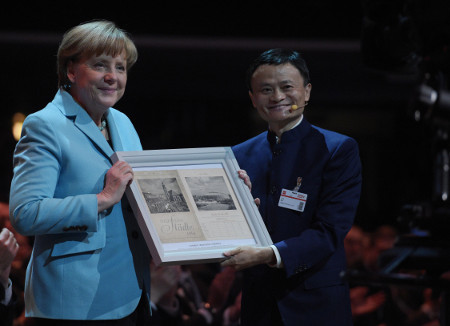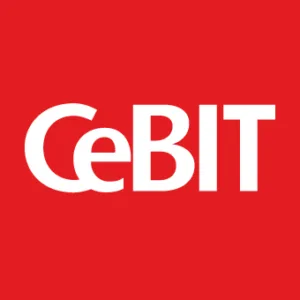We have been documenting the decline of CeBIT for quite a few years, now (I’ve seen the arc over 30 or more years – Man. Ed.). It grew out of the Hannover Fair, which covers many industries, in the 1980s and was a huge success in the ’90s. However, many of the top PC hardware brands dropped to low level of attendance a few years ago and it entered a period of decline. The show got something of a revival when, for a few years, mobile technology really grew, but the mobile business then established MWC in Barcelona and abandoned CeBIT as an international event (although it’s still important as a local mobile event).
Since then, the show has seen a steady decline, although organisers said that there were around 3,300 exhibiting companies from 70 countries and they claimed that the space taken has risen for the first time since 2001 with a number of companies increasing their booth size. The expectation was of 200,000 visitors, a far cry from the 600,000+ in years gone by. It no longer runs over the weekend, so the crowd is more business-oriented.
We attended on the first day, so it may be that by the end of the week attendance numbers will be up, but the first impression was of real quiet. Some of the press facilities were not even opened this time and just before 9:00 am on the first morning, there was only a short queue waiting for entry. I managed to get a seat on the fast train from Hamburg, even though I had no seat reservation. I even got a press locker!
Many of the halls were very quiet, although the main software halls with Microsoft, SAP and Software Ag were busy and I make no change in my analysis that from an international hardware show, it has become a German software event. Except for the Chinese.
There was a huge area in Halle 6 that was taken by the Chinese trade authorities and with attendance from several big vendors including BOE, CEC and TCL. However, there were very few visitors on the booths when we visited, in the middle of the afternoon. We were told by staff from the companies that we spoke to that they were there partly because China was the special partner company this year. There were also hundreds of small component and accessory companies from China, but few talking to anybody when we went past. It’s hard to imagine how they can recover the costs of participation.
The biggest part of our time was in the Reseller Hall where API ComputerHandel had a big booth that was being supported by a number of vendors of displays and graphics products.
We managed to get around to see everyone that we thought was relevant in a single day, including a brief wander around the technology hall that is always one of the most interesting parts of the show, if you are a geek!
 On the day before the show started, there was a big press event with Chancellor Merkel and Jack Ma of AliBaba. Ma said that he was at CeBIT for the third time as he had found it very hard on previous occasions to make an impact in Europe. Looking to the future, he said that the next wave of business is about building sustainable internet companies. At the moment, internet companies such as Google and AliBaba could not, typically, last more than a few years – they have to become like Mercedes or Siemens. (I wonder about this – the point about software is that it is very asset light and becoming more so as the cloud becomes more important – and that means faster speed and mobility. There’s a symmetry, companies can become global leaders very quickly, but can die just as fast. – Man. Ed.)
On the day before the show started, there was a big press event with Chancellor Merkel and Jack Ma of AliBaba. Ma said that he was at CeBIT for the third time as he had found it very hard on previous occasions to make an impact in Europe. Looking to the future, he said that the next wave of business is about building sustainable internet companies. At the moment, internet companies such as Google and AliBaba could not, typically, last more than a few years – they have to become like Mercedes or Siemens. (I wonder about this – the point about software is that it is very asset light and becoming more so as the cloud becomes more important – and that means faster speed and mobility. There’s a symmetry, companies can become global leaders very quickly, but can die just as fast. – Man. Ed.)
Ma said that B2C has to become C2B, with businesses doing more to offer customised products. The last industrial revolution was about replacing muscle power, the next one will be based on replacing and enhancing human brains. In the future, he said that “clicks & mortar” is essential. It’s not technology that changes the world, it’s the dreams that matter. Ma said that his latest dream for the future at CeBIT was to help small companies from Europe to enter the Chinese market.
Ma also demonstrated how an app he has developed can enable purchase of products from the internet, using face recognition to verify the buyer’s identity.
Merkel set out plans to help the development of the economy by some clear steps including bringing a 50Mbit/s connection to all citizens, with an aim of bringing this by 2018. Money from the 700MHz spectrum auction will be spent on improving rural access and public Wi-Fi will be expanded. Germany will also try to make it easier for start up companies to get going as well as working with other European countries to develop a clear and common network. Merkel also wants to work on mobile networks to help to maintain Germany as a centre for the automotive industry. At the same time, regulations for anonymity of data and net neutrality need to be developed.

